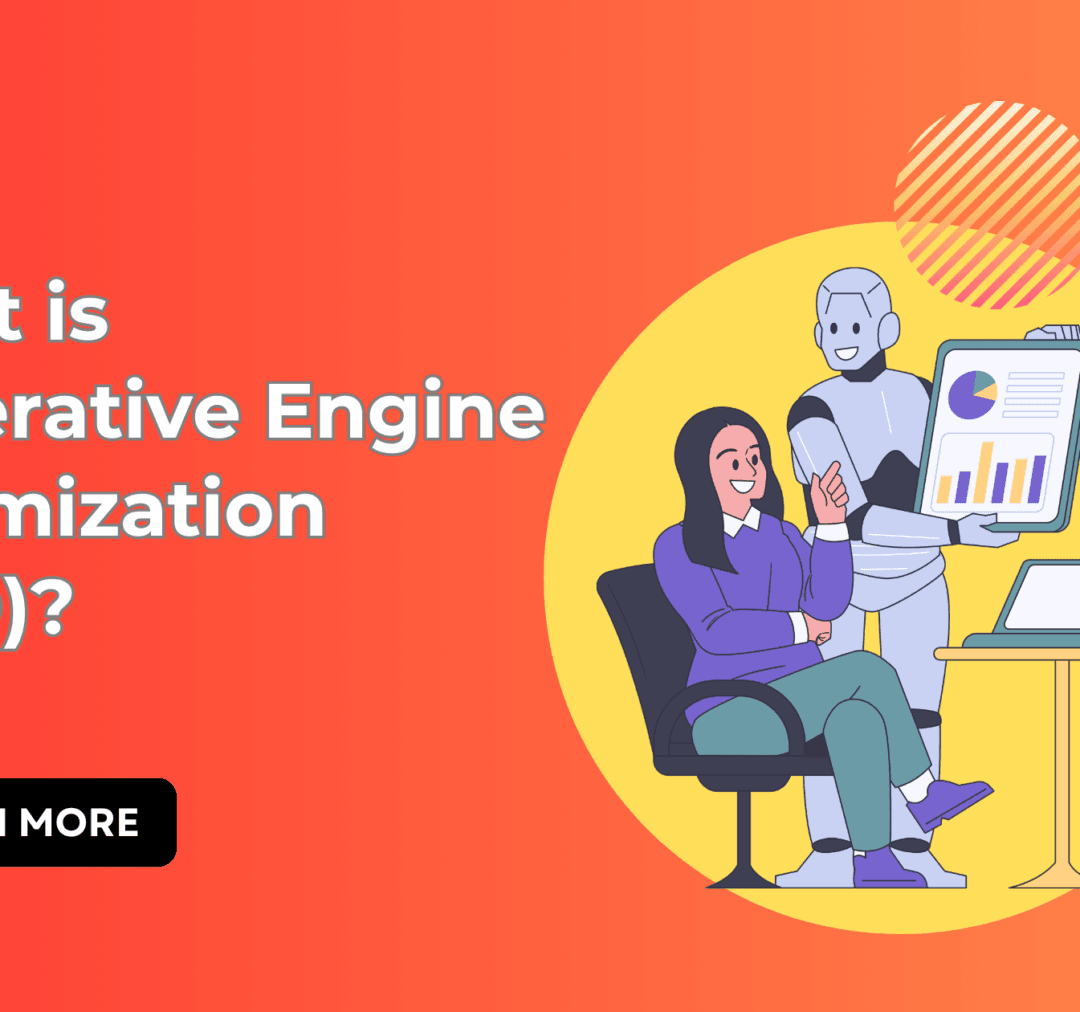SEO has been evolving continuously, and with AI taking over digital marketing strategies, a new concept is emerging—Generative Engine Optimization (GEO). But what exactly is GEO, and why is it crucial for businesses looking to dominate search rankings?
In simple terms, Generative Engine Optimization is the process of using artificial intelligence (AI) to automate, enhance, and optimize content for search engines. Traditional SEO relies heavily on manual keyword research, content writing, and link-building strategies. But with AI for SEO, many of these processes are now automated, making optimization faster, smarter, and more efficient.
If you’re running a digital marketing agency in Delhi, India, like we are at Prashantji Services, embracing GEO can give you a major competitive edge. Let’s dive deep into what is a GEO, how it works, and how businesses can leverage it to dominate search results.
What is Generative Engine Optimization (GEO)?
Generative Engine Optimization (GEO) is an advanced form of SEO that uses AI and machine learning to automate content creation, keyword research, and search engine rankings. Instead of manually optimizing websites, GEO leverages AI-powered tools to analyze trends, personalize content, and improve visibility. It helps businesses rank faster by generating high-quality, SEO-friendly content with minimal effort. Simply put, GEO is the future of SEO, making digital marketing smarter, faster, and more effectiv
How is Generative Engine Optimization Changing SEO?
Traditional SEO was all about finding keywords, writing optimized content, and building backlinks. But Generative Engine Optimization takes things a step further. It integrates AI SEO techniques that:
- Automate content creation using AI models
- Optimize keywords in real-time based on search trends
- Generate backlinks automatically using AI-driven outreach
- Personalize content dynamically for different audiences
Instead of spending hours manually researching and optimizing, AI for SEO can analyze vast amounts of data within seconds, helping businesses stay ahead of their competitors.
How Does GEO Differ from Traditional SEO?
| Feature | Traditional SEO | Generative Engine Optimization (GEO) |
|---|---|---|
| Keyword Research | Manual | AI-driven and automated |
| Content Creation | Human-written | AI-generated with human refinement |
| Backlink Building | Manual outreach | AI-powered link acquisition |
| Search Intent Analysis | Limited | AI-driven real-time analysis |
The biggest advantage? AI SEO speeds up processes, minimizes human effort, and ensures accuracy based on data-driven insights.
Why is GEO Important for Digital Marketing?
Businesses adopting Generative Engine Optimization can see a 30-50% increase in organic traffic due to AI’s ability to optimize content more efficiently than humans.
1. Faster Content Creation with AI SEO
AI tools like Jasper AI, ChatGPT, and Copy.ai generate high-quality, SEO-optimized content within minutes. Instead of spending hours manually writing articles, AI for SEO creates drafts based on real-time keyword trends. This speeds up content production while ensuring relevance, accuracy, and better search rankings.
2. Automated Keyword Optimization
GEO uses AI SEO tools to analyze and integrate long-tail keywords such as what is a geo, define geo, AI for SEO, AI SEO, engine optimization naturally within content. Unlike manual keyword placement, AI ensures keyword density remains optimal, improving search rankings without overstuffing or compromising readability and user experience.
3. AI-Powered Backlink Building
Backlinks play a critical role in SEO, and AI for SEO automates outreach, helping businesses secure high-quality backlinks effortlessly. AI-driven backlink strategies analyze competitor links, suggest potential outreach opportunities, and streamline link-building, ensuring a strong engine optimization process that boosts website authority and organic rankings.
4. Enhanced User Experience
AI-driven Generative Engine Optimization enhances user experience by dynamically personalizing content based on search intent. It ensures visitors receive relevant, engaging content tailored to their preferences, reducing bounce rates and improving on-page engagement. AI SEO optimizes page speed, readability, and content flow for maximum impact.
How to Implement GEO in Your SEO Strategy?

1. Understand Your Target Audience
Before implementing AI SEO, it’s crucial to analyze your audience’s search behavior. AI tools like ChatGPT, Jasper AI, and Surfer SEO help identify trending topics, user intent, and relevant keywords. By understanding what your audience is searching for, you can create content that aligns with their needs and interests.
2. Use AI-Powered Content Generators
AI-powered tools like OpenAI, Jasper, and Copy.ai generate high-quality, SEO-friendly content within minutes. These platforms analyze engine optimization principles and create engaging, well-structured articles. Leveraging AI for SEO ensures consistency in content production while reducing manual effort, ultimately improving search rankings and user engagement.
3. Automate Keyword Research
Instead of spending hours manually researching keywords, use AI-driven tools like Google’s NLP API, SEMrush, and Ahrefs. These tools find long-tail keywords like define geo, AI SEO, AI for SEO, ensuring they are naturally integrated into content. AI-powered keyword analysis improves engine optimization by targeting user intent efficiently.
4. Optimize for Voice Search
With the rise of AI-powered voice assistants like Alexa and Google Assistant, optimizing for voice search is essential. GEO ensures content is conversational, mobile-friendly, and optimized for long-tail keywords. This enhances search visibility, making it easier for voice search users to find your content on search engines.
The Future of GEO and AI in Digital Marketing
The way search engines rank content is changing. Google is already integrating AI into its ranking algorithms, meaning AI for SEO is not just a trend—it’s the future.
- Search engines will prioritize AI-optimized content
- AI-powered GEO strategies will dominate rankings
- Businesses relying on manual SEO will fall behind
If you’re not implementing Generative Engine Optimization, you’re missing out on a huge competitive advantage in digital marketing.
Common Mistakes to Avoid in GEO
- Ignoring Quality Control – AI may produce irrelevant or inaccurate content, so always verify and edit before publishing.
- Neglecting User Intent – AI can optimize for search engines but may overlook real user needs; always focus on valuable, relevant content.
- Ignoring E-E-A-T (Experience, Expertise, Authority, Trustworthiness) – Google values credible, expert-driven content, so AI content should align with authoritative sources.
- Lack of Human Creativity – AI can’t replicate human emotions, storytelling, or unique insights, so blend AI-generated content with personal experiences and expertise.
- Not Fact-Checking AI Content – AI may generate outdated or inaccurate information, so always verify facts before publishing.
- Forgetting Mobile Optimization – AI-generated content should be formatted for mobile-friendliness to ensure seamless readability across devices.
FAQs
Q1. What is a GEO and how does it work?
Ans: Generative Engine Optimization (GEO) is an AI-powered SEO strategy that automates content creation, keyword optimization, and search rankings using artificial intelligence.
Q2. How does AI for SEO impact rankings?
Ans: AI helps businesses rank higher by analyzing search intent, optimizing content, and automating backlinks faster than manual SEO methods.
Q3. Can AI-generated content replace human writers?
Ans: No. While AI SEO tools can create content quickly, human input is necessary to refine it, ensuring authenticity and engagement.
Q4. Is AI SEO safe for long-term rankings?
Ans: Yes, if used correctly. Google values high-quality, user-friendly content, so AI-generated content should always be optimized for readability and relevance.
Q5. What tools can help with Generative Engine Optimization?
Ans: Popular tools include Jasper AI, Surfer SEO, ChatGPT, MarketMuse, and SEMrush for AI-powered SEO strategies.
Conclusion
Generative Engine Optimization (GEO) is revolutionizing SEO by integrating AI-powered tools for automated keyword research, content creation, and backlink building. If you’re serious about ranking higher on Google, adopting AI SEO strategies is no longer optional—it’s essential.
At Prashantji Services, our digital marketing agency in Delhi, India, we use cutting-edge AI for SEO techniques to help brands dominate search rankings. The future of engine optimization is here—are you ready to embrace it?








